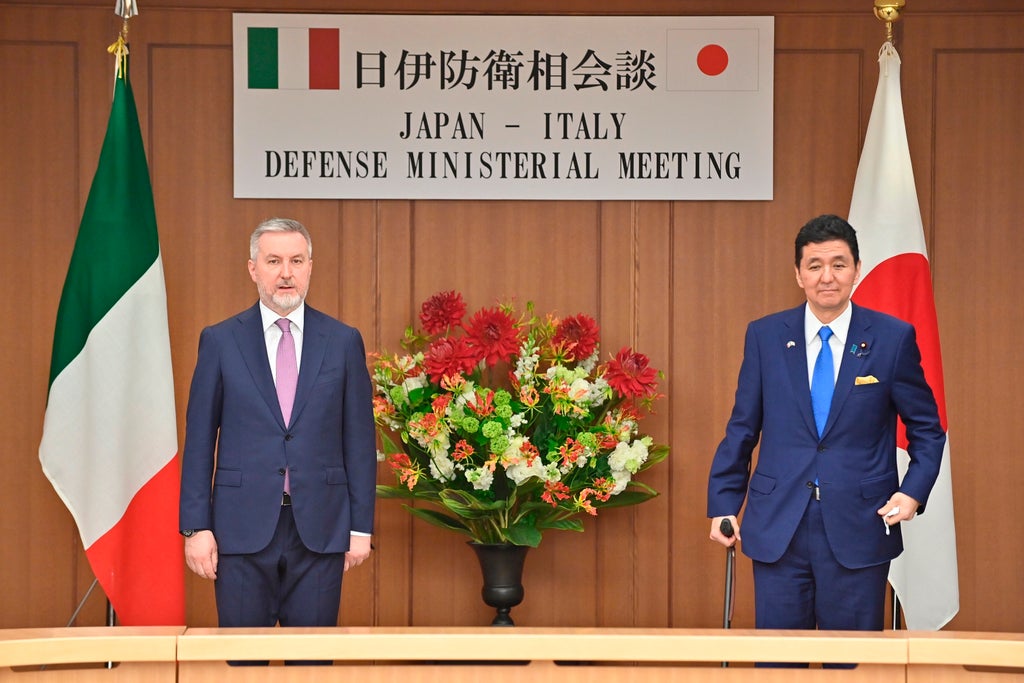
Japanese Defense Minister Nobuo Kishi said he and his Italian counterpart agreed Tuesday to step up military cooperation as Japan expands security ties with Europe amid concern about Russia's invasion of Ukraine and its impact on Asia.
Kishi told reporters that he and Italian Defense Minister Lorenzo Guerini discussed the possible expansion of joint military drills and development of defense technology.
Guerini, who is visiting Tokyo, especially expressed interest in possible Italian participation in Japan’s F-X next generation fighter jet, Kishi said, declining to elaborate. It would be Japan’s first domestically developed fighter jet in 40 years.
Japan and Britain have agreed to jointly develop a future demonstration fighter jet engine and to explore other combat air technologies and subsystems. The project includes Mitsubishi Heavy Industries and IHI in Japan and Rolls-Royce and BAE Systems in the U.K.
The two ministers agreed that Russia’s invasion of Ukraine undermines the foundation of the international order, not only in Europe but also in Asia, and is “absolutely impermissible.”
“We agreed on the importance for countries that share fundamental values, such as Japan and Italy, to stick together and act resolutely," Kishi said.
Kishi said Japan highly regards Italy’s interest and involvement in the Indo-Pacific, where China's increasingly assertive military activity has raised tensions.
Japan in recent years has significantly expanded security talks and joint drills with the U.S. and other partners in the Asia-Pacific region and Europe that share its concerns about China’s assertion of its territorial claims in the region, which has some of the world’s busiest sea lanes.
Japan is not a NATO member but has strengthened its partnership with the group. It sent Foreign Minister Yoshimasa Hayashi to join the NATO foreign ministers' meeting earlier this month to discuss Ukraine.
Japan is especially concerned about Chinese military and coast guard activity in the East China Sea near the Japanese-controlled Senkaku islands, which China also claims and calls Diaoyu.
China, the Philippines, Vietnam, Taiwan, Malaysia and Brunei have been locked in a tense territorial standoff in the South China Sea for decades.
China defends its activities as its own right.







